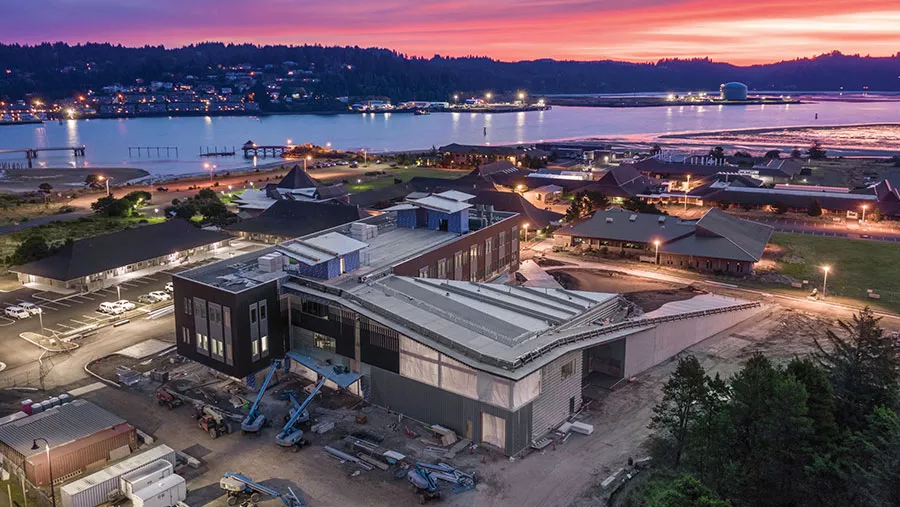Oceans, Coasts & Marine Studies
Immerse Yoursef
Something special is waiting for you. Dive in.
More than 80% of the Earth's oceans have yet to be observed and explored. These waters are teeming with life and potential - forming the basis of our global economy, nourishing communities all over the world, and captivating scientists and artists alike. Yet for all of the ocean's power, there are equally daunting threats - from climate change, ocean acidification, pollution, and others.
Whatever your passion - whatever your area of study - marine studies will introduce you to the intricacies of ocean ecosystems, open your eyes to the challenges facing them and help you embrace your role as a steward of these resources for future generations.
Get ready for what's next.
In marine-related career fields, you need a wide range of skills, and that starts early with a well-balanced college preparatory curriculum, including English and mathematics. Classes in speech and fundamental computer skills will sharpen your writing and communication abilities. And because ocean issues involve people, volunteer work and other extracurricular activities can help you develop social and leadership skills during your high school or community college career.
Launch a rewarding career in virtually any direction.
You can incorporate your love for the ocean into just about any career, whether you're studying engineering, anthropology, digital communication, marine biology, animal sciences, education, earth sciences and much more. Plus, the growth of the “blue” economy — with its focus on sustainable use of ocean resources — means expanding job opportunities. And since the ocean and its influence is truly global, you can work in the United States and abroad, in a federal, state or local government agency, a university, nonprofit or other community organization.
Hatfield Marine Science Center (HMSC)
Over the past 50 years, the HMSC in Newport has become one of the world’s leading marine laboratories. Known for collaborative research and a vast array of experiential learning opportunities, the lab offers courses and a thriving summer internship program. A new Marine Studies Building is a hub for students, faculty and partners. The space features a state-of-the-art innovation lab and studio, designed to enable students, researchers and entrepreneurs to design, build, test and market new technologies, and promote creative artistic projects.
Port Orford Field Station
Located just south of Cape Blanco on Oregon’s southern coast, the field station provides access to the region’s unique marine and terrestrial ecosystem for teaching and research, particularly in coastal stewardship and sustainability.
OSU Seafood Lab
The Seafood Research and Education Center in Astoria helps fishermen add value to their catch and processors develop innovative seafood products. Since 1940, the lab’s ongoing research has advanced seafood science, safety and technology.

Multiple scholarships are available. Be sure to apply.
Get some help paying for college with a variety of university-wide and departmental scholarships. Most scholarships are awarded based on information in the Oregon State application, but others require separate applications, such as our OSU ScholarDollars portal. The deadline to apply for university scholarships is Feb. 1. Be sure to check with your college and department on the deadlines for other scholarships. Apply Now.
Put yourself out there.
Oregon State offers a resource-rich environment that encourages you to combine your studies in health and wellness with opportunities like the Honors College and study abroad programs. You’ll find challenging, unique experiences that support your academic, professional and personal growth — and have fun, too.
Research lets you discover and solve.
Like internships, research experience can give you an advantage when applying to graduate and professional programs. In most health areas, you’ll have opportunities to make real contributions to faculty and graduate students’ research projects. You may also develop and pursue your own research addressing local, national and international health concerns.